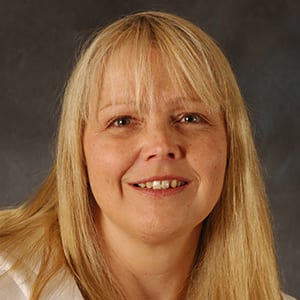SNOHOMISH, Wash. – The 53rd Gatornationals at Florida’s Gainesville Raceway will be run March 11-13. With that, one name naturally comes to mind — “Big Daddy” Don Garlits.
Singlehandedly, Garlits proved that drag racing reached far beyond its Southern California cocoon. He became an irremovable obstacle to sanctioning-body founder Wally Parks’ vision of motorsports Utopia.
Brazen to this day, often in innovative and forward-thinking ways, even 15 years after Parks’ passing, Garlits remains a symbol of the sport’s appeal. He’s naturally audacious, defiant, rebellious — exactly the kind of man who built drag racing.
Richard Parks, the elder of Wally Parks’ two sons, referred to the fact Garlits was called “Don Garbage” and took pride in the disdain the in-crowd showed him by naming his cars and himself “Swamp Rat.”
Parks said, “Don Garlits had been shown disrespect, from his point of view: He was still the greatest drag racer of his generation, and yet the Gary Becks, Billy Meyers and other drag racers had been openly primed to take his crown. Don Garlits wasn’t going to let others decide that for him. He openly scoffed at titles like ‘Snake’ (Don Prudhomme), ‘Mongoose’ (Tom McEwen) and others.”
Garlits, who lives in Ocala, Fla., turned 90 years old on Jan. 14. He outlived Parks, and so have their quarrels.
Richard Parks has compiled a voluminous history of his father’s life and career and some of the juicier tales center on this contentious relationship.
“Don Garlits and Wally Parks are two of the biggest names in drag racing and over the years they have toasted to each other’s health and cursed the other’s existence, but you’ve got to love them both,” Richard Parks said. “In many cases, they were so similar: driven men with focused goals. In other ways they were the exact opposite. It is due to their natures that these two men made my life more exciting and at times painful.
“I admire Don for the way he put family first. And in a way, so did my father, except his family was the NHRA and that sort of hurt. On the other hand, I respected the way my father kept his temper under pressure; that was very hard for Garlits to do. Then again, you always knew what Don felt; I hardly ever knew what my father was up to.
“My father smiled when Garlits declared, ‘I will never, ever race for the NHRA again,’ and of course he would. The difference was that my father would never tell you what his intentions were, but Don would. I do like these two men — but for vastly different reasons.”
Garlits said, “I didn’t like Wally Parks. I respected him. That’s about it.
“Wally took a bunch of leather-jacketed hoodlums off the street and made them legitimate. He did a great job of founding the NHRA, to get the guys off the street. But he was a tough guy to deal with,” Garlits recalled. “He was very stubborn. It was his way or the highway. We rubbed each other raw that way. There were always things I wanted to improve the sport, and he didn’t think they would improve it. I wanted the purses to be higher, because he was asking us to go to a lot of races and we weren’t making any money doing it.
“Finally, in 1972, I had a meeting with him,” Garlits continued. “I said, ‘Wally, that U.S. Nationals needs to pay $25,000.’ He said it’ll be light years before it paid $25,000. The racers and I got together. We formed PRO and we had our race at Tulsa on Labor Day (to conflict with the Indianapolis classic). And we did pay $25,000. And it changed the whole sport. He never forgave me for that.”
But three years later — in the midst of the energy crisis and threats to drag racing from the EPA — the two exchanged pleasant missives.
Richard Parks found a copy of this letter from his dad to Garlits in February 1975: “Just a brief note to tell you how sorry I am that your Winternationals performance ended on the unfortunate brake-failure incident. Once is bad enough, but twice in successive weekends had to be a tough pill to swallow. I sincerely hope your luck will now improve and you can get back into winning stride. Will look forward to seeing you in Florida, on home ground, maybe in the Gatornationals winners’ circle. It’s your turn again.”
Garlits replied three days later, “Just a short note of thanks for a fine evening and dinner. We enjoyed the steaks and I might add the dobies (Doberman dogs) enjoyed the bones. I also enjoyed the tour of the fine facility that NHRA maintains. I have always admired an efficient operation and you certainly have one.”
The younger Parks saw that “these two titans of the sport respected each other even if they continually fought over details.”
In October 1975, Wally Parks penned a letter to Garlits, congratulating him for winning the season finale at Ontario: “I hope you will continue to be a part of the sport and its industry, Don, and I already have made some inquiries as to possibilities that may interest you. For example, I proposed to ABC that you would be our choice as an addition to their Wide World of Sports narration of major NHRA events. They’re interested. Also, we plan to produce national telecasts for three of our 1976 events and if you’re interested, we can consider similar involvement for you there. As an expert on drag racing, you are tops. And no one can deny your supremacy as the world champion.”
On that they could agree.
